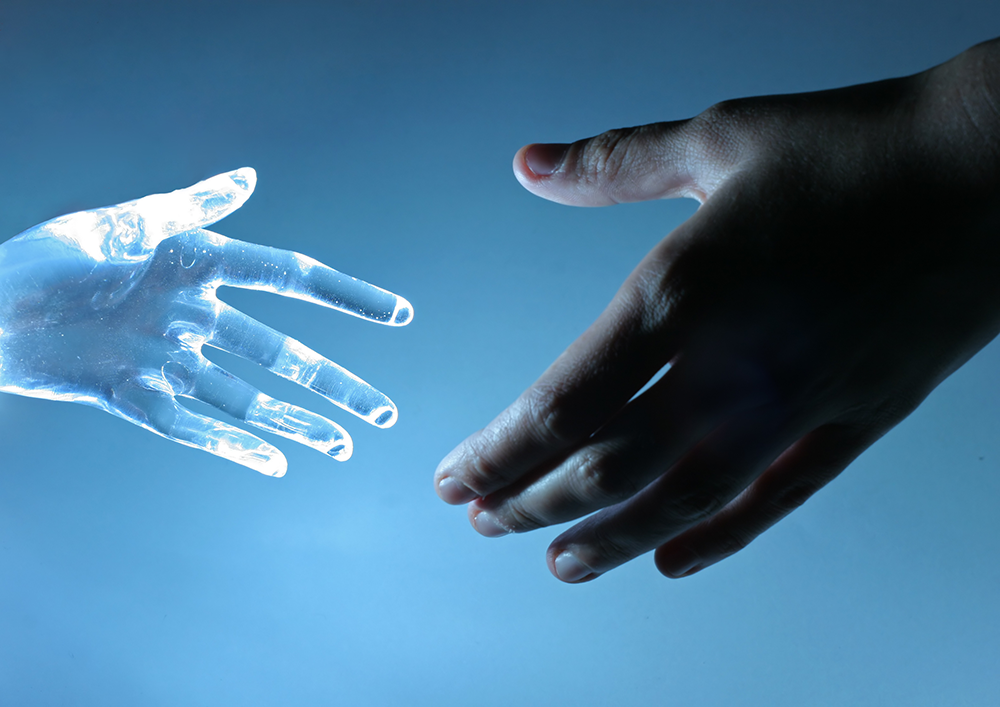AI in elder care is poised to revolutionize healthcare facilities by delivering personalized and timely medical assistance. From monitoring vital signs to administering medication reminders, AI-powered systems ensure seniors receive the attention they need promptly, significantly reducing the risk of medical emergencies. Emerging AI models can even identify medical conditions before symptoms appear. However, there can be disadvantages, too.
1. Enhanced Healthcare Services
AI in elder care can revolutionize healthcare facilities by providing personalized and timely medical assistance. From monitoring vital signs to administering medication reminders, AI-powered systems can ensure that seniors receive the attention they need promptly, reducing the risk of medical emergencies.
Further, AI models are currently in use and in development that can identify medical conditions before symptoms arise. A recent Medical News Today article detailed research from the University of California, San Francisco, that used AI to identify early risk factors for Alzheimer’s and predict whether an individual will develop Alzheimer’s up to seven years before symptoms occur. You can read more about this study here. Another recent study published in the journal Proceedings of the National Academy of Sciences involved a team of Chinese researchers developing an AI-based facial, ocular, and tongue scan to predict the risk of age-related diseases.
2. Cost Reduction
Implementing AI in elder care facilities can lead to significant cost savings. Automated processes, such as predictive maintenance for equipment and optimized staff scheduling, can streamline operations and minimize unnecessary expenditures. Additionally, AI-driven predictive analytics can help prevent avoidable health complications, ultimately reducing healthcare costs.
Using AI and machine learning can address a costly issue related to Electronic Health Records (EHR). While initially thought to reduce friction in healthcare and enhance communication, resulting in more positive outcomes, providers cite excessive EHR requirements as a reason for burnout, and the required data entry by staff reduces person-to-person interaction. Using AI-based models can expedite EHR use with fewer mistakes and allow for more meaningful interaction between care providers and patients. A Fast Company article discussed AI reducing EHR costs.
3. Enhanced Human Connection
Contrary to concerns about AI replacing human interaction, these technologies often facilitate deeper human connections. By alleviating staff workload through automation, caregivers spend less time documenting behind a computer screen and more time and attention building meaningful relationships with patients and residents, fostering a supportive and compassionate environment.
The Disadvantages of AI in Elder Care & Healthcare:
1. Privacy Concerns
One of the concerns surrounding the use of AI in elder care and healthcare is the potential invasion of privacy. As these technologies collect vast amounts of personal data to deliver personalized care, safeguarding privacy becomes paramount. Implementing robust data encryption protocols, obtaining informed consent from residents, and adhering to strict regulatory frameworks can help mitigate privacy risks. An additional concern is how private companies may monetize this data. To date, limited legislation has been passed to ensure privacy related to AI and other technologies currently deployed in healthcare and senior care. While Congress is working to address this, legislation moves at a glacial pace compared to technology. Regardless, Congress is conducting hearings and developing legislation to protect sensitive information. An article published in November 2023 discusses data privacy concerns in health AI, and a Senate committee hearing from September 2023 also addresses these concerns.
2. Bias in AI Algorithms
Another critical consideration is the presence of bias in AI algorithms, which may perpetuate inequalities in healthcare delivery. For instance, if AI systems are trained predominantly on data from certain demographic groups, they may not accurately cater to the needs of all seniors. To address this, developers must prioritize diversity and inclusivity in their training datasets and implement rigorous bias detection and mitigation strategies. A 2019 study published in the journal Science uncovered that a predictive healthcare algorithm used to address follow-up care needs was biased against black patients. The study noted that the algorithm was fed historic healthcare spending patterns to predict how and when individuals would need follow-up care in the future. However, because black patients have less access to care and thus spend less, the information entered into the algorithm was inherently flawed, leading to flawed results. An article from 2019 details this study.
3. Doubts Among Seniors
Many seniors may harbor apprehensions about embracing AI in elder care due to a lack of familiarity or privacy concerns. To overcome these fears, it’s essential to involve seniors in the design and implementation process, ensuring that AI solutions are intuitive, user-friendly, and aligned with their preferences and needs. Providing training and support can empower seniors to embrace technology as a valuable tool rather than a threat.
Conclusion
The integration of AI in elder care facilities holds promise for revolutionizing the way we support and empower seniors to take control of their care, maintain independence, and advocate for themselves. AI can also enhance healthcare services and reduce costs while fostering human connection and improving quality of life. However, it’s crucial to address concerns surrounding privacy, bias, and technology fears to ensure that AI-driven innovations prioritize the well-being and dignity of seniors. By navigating these challenges thoughtfully and ethically, we can use the power of AI to help create a future where aging is characterized by dignity, autonomy, and compassionate care.
Rothkoff Law Group’s AgeTech Coordination team continually identifies technology to facilitate the best care possible while reducing the costs of that care. We encourage you to read more about this on our website.


